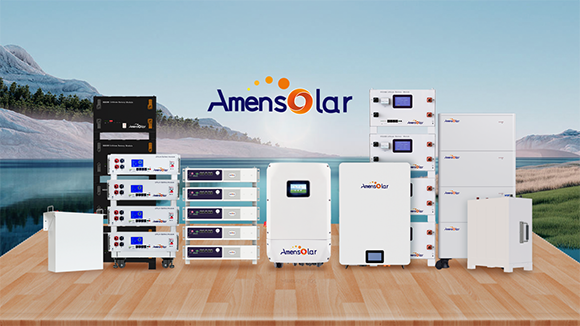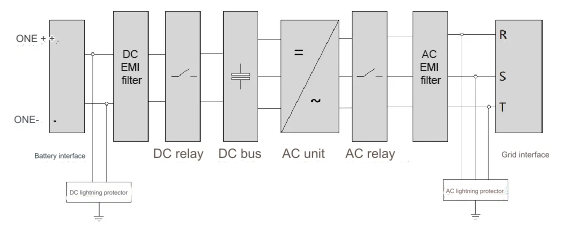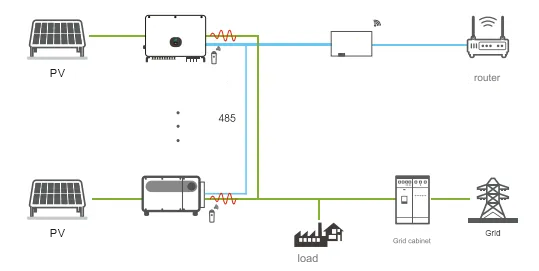
In the field of new energy, photovoltaic inverters and energy storage inverters are important equipment, and they play an indispensable role in our lives. But what exactly is the difference between the two? We will conduct an in-depth analysis of these two inverters from the aspects of structure, function, application scenarios, etc.
01 Structural difference
First of all, in principle, an inverter is mainly a device that converts DC power into AC power. It uses the switching characteristics of semiconductor devices (such as field effect transistors or thyristors, etc.) to control the power supply voltage and current through rapid switching, thereby achieving conversion from DC to AC.

Photovoltaic inverter topology diagram
The energy storage inverter (PCS) is a broader concept, which involves the conversion and regulation of electric energy through power electronic devices to achieve power transmission, conversion and control. PCS mainly includes rectifier, inverter, DC/DC conversion and other module parts, of which the inverter module is only one of its components.

Energy storage inverter topology diagram
02 Features
Functionally, a photovoltaic inverter mainly focuses on converting DC power generated by solar photovoltaic panels into AC power for use on the power grid or electrical appliances. It optimizes the output power of the solar photovoltaic array through internal circuits and control modules, performs a series of processes on the DC power generated by the photovoltaic panels, and finally outputs AC power that meets the requirements of the power grid.
Energy storage inverters pay more attention to the two-way conversion and intelligent management of electric energy. It not only converts DC power into AC power, but also converts AC power into DC power for storage. In addition to realizing DC to AC conversion, it also supports BMS/EMS linkage, cluster-level management, increased charge and discharge capacity, local independent management of peak shaving and valley filling, and intelligent scheduling of charge and discharge operations of the energy storage system.
03 Application scenarios
In terms of application scenarios, photovoltaic inverters are mainly used in solar power generation systems, such as household photovoltaic systems, industrial and commercial photovoltaic projects, and large ground power stations. Its main function is to convert the DC power of the solar power generation system into AC power and integrate it into the grid.

Photovoltaic inverter system diagram
Energy storage inverters are more focused on applications in electrochemical energy storage systems, such as energy storage power stations, centralized or string type, industrial, commercial and household scenarios. In these scenarios, energy storage inverters achieve efficient utilization and storage of renewable energy by intelligently managing the charging and discharging process, providing stable and reliable power support for various application scenarios.
04 Energy storage inverter system diagram

Common points and differences In terms of common points, both are power electronic devices, used for the conversion and regulation of electric energy to achieve stable operation of the power system. They all need to meet certain electrical safety standards to ensure the safe operation of the equipment. In addition, since energy storage inverters require integrated battery management systems, their costs are relatively high. The function of photovoltaic inverters is relatively simple, so the cost is usually low. At the same time, energy storage inverters also have higher safety requirements. In addition to meeting basic electrical safety standards, the safety of the battery management system and protection measures in the event of battery failure also need to be considered.
05 Summarize
In conclusion, there are evident distinctions between photovoltaic inverters and energy storage inverters concerning principles, application contexts, power output, costs, and safety. When it comes to real-world applications, it's essential to choose the suitable equipment based on specific requirements and scenarios. Partnering with AMENSOLAR, as a leading solar inverter manufacturer, ensures access to optimal solutions, attracting more distributors to join our network.
Post time: May-24-2024








